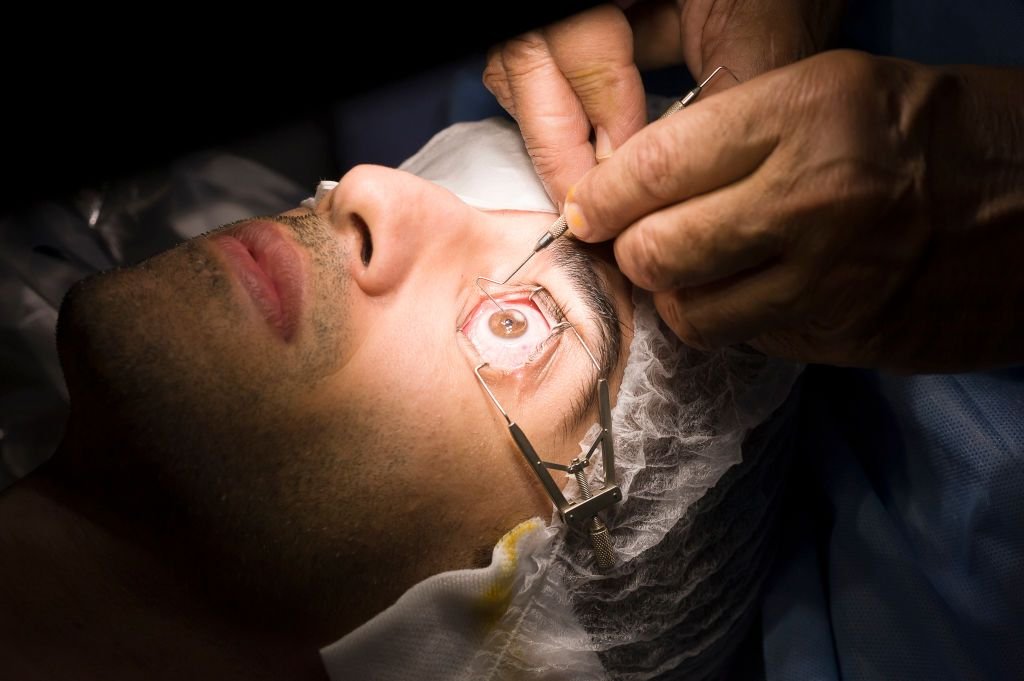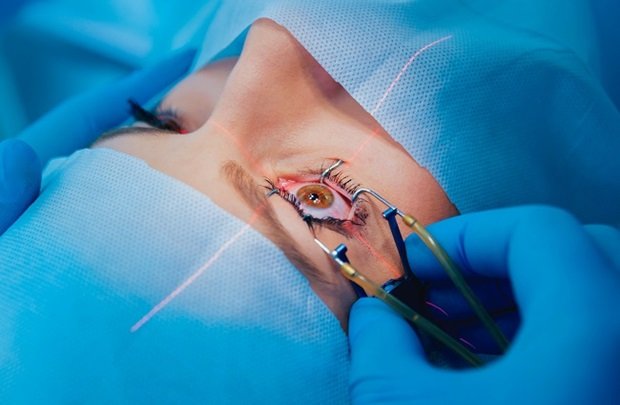Proficiency in Lasik Eye Surgery Available in Tallahassee
Proficiency in Lasik Eye Surgery Available in Tallahassee
Blog Article
An In-depth Look at the Different Eye Surgical Procedure Procedures Provided by Competent Optometrist
In the world of ophthalmology, the landscape of eye surgical treatment treatments provided by experienced optometrist is as varied as it is advanced. From the extensively identified LASIK eye surgery to the less familiar refractive lens exchange, each treatment holds the guarantee of vision adjustment and improvement. As patients browse the myriad alternatives available to them, recognizing the ins and outs of these surgical interventions comes to be extremely important in making informed decisions concerning their eye health. The accuracy, modern technology, and know-how behind these procedures introduce a fascinating globe where science and art merge to redefine the possibilities of vision enhancement.

LASIK Eye Surgical Procedure
The accuracy of LASIK eye surgical procedure supplies people a transformative solution for vision modification provided by skilled optometrist. LASIK, which stands for Laser-Assisted Sitting Keratomileusis, is a preferred refractive surgery that improves the cornea to resolve common vision problems such as farsightedness, nearsightedness, and astigmatism. This outpatient procedure makes use of an extremely specialized laser to specifically get rid of tiny amounts of cells from the cornea, enabling improved concentrating power and more clear vision without the requirement for glasses or contact lenses.
During the LASIK treatment, the eye specialist develops a slim flap on the cornea utilizing a microkeratome or a femtosecond laser. With its high success rate and quick recovery time, LASIK eye surgical procedure has actually ended up being a trusted approach for accomplishing long-term vision renovation (Ophthalmologist Tallahassee).
PRK Treatment
A very reliable choice to LASIK eye surgical treatment is the PRK treatment, known for its effective outcomes in vision improvement. PRK, or Photorefractive Keratectomy, is a sort of refractive surgical procedure that reshapes the cornea to remedy refractive mistakes such as nearsightedness, astigmatism, and farsightedness.
During the PRK treatment, the external layer of the cornea, called the epithelium, is removed to access the underlying corneal tissue. Unlike LASIK, which develops a flap in the cornea, PRK straight reshapes the surface of the cornea. Best Eye Doctor In Tallahassee. This makes PRK a suitable choice for people with slim corneas or other corneal abnormalities that might stop them from undergoing LASIK
The epithelium regenerates naturally over a few days after the treatment. While the recuperation time for PRK is typically much longer contrasted to LASIK, several people attain exceptional aesthetic results with this procedure.
Cataract Surgical Treatment
Cataract surgical treatment is a common procedure performed to get rid of the over cast lens of the eye and change it with a clear man-made lens. This surgical treatment is usually done on an outpatient basis and is highly successful in recovering vision. The gloomy lens, which is known as a cataract, creates progressively and can trigger obscured vision, problem seeing in the evening, and level of sensitivity to light.
Throughout the cataract surgical treatment procedure, the eye doctor makes a tiny cut in the eye and utilizes ultrasound technology to damage up the cloudy lens. The fragmented lens is after that carefully suctioned out, and an artificial intraocular lens (IOL) is put in its location. This IOL helps to concentrate light onto the retina, enhancing vision.
Patients undertaking cataract surgical procedure are typically awake throughout the procedure, which generally lasts around 15-30 mins. Healing time is reasonably fast, with many people noticing boosted vision within a few days. It is necessary to comply with post-operative care directions provided by the eye specialist to guarantee optimum healing and vision end results.
Refractive Lens Exchange
Refractive Lens Exchange, likewise referred to as lens substitute surgery, is a procedure that entails eliminating the eye's all-natural lens and changing it with a synthetic lens to deal with vision problems. This medical technique is mainly used to treat presbyopia, extreme hyperopia (farsightedness), and other refractive errors that can not be effectively addressed with standard methods like glasses or get in touch with lenses. During the treatment, the natural lens is normally replaced with a premium intraocular lens (IOL) that can deal with refractive errors and, in many cases, also prevent the growth of cataracts in the future. Refractive Lens Exchange is thought about a risk-free and effective alternative for individuals looking for to decrease their dependancy on corrective eyeglasses and improve their general top quality of vision. By talking to more helpful hints a proficient optometrist, patients can identify if they are appropriate prospects for this kind of surgical treatment and talk about the prospective advantages and threats connected with the treatment.
Corneal Transplant
Having dealt with refractive errors via treatments like lens replacement surgery, skilled eye doctors additionally use corneal transplants as a service for sure eye problems. A corneal transplant, likewise referred to as corneal grafting, entails changing a damaged or infected cornea with a healthy donor cornea to boost vision. This procedure is typically advised for people with conditions such as keratoconus, corneal scarring, corneal abscess, or corneal thinning.
Throughout a corneal transplant, the sensory cosmetic surgeon eliminates the central part of the damaged cornea and replaces it with a contributor cornea that is carefully matched for shapes and size. There are different kinds of corneal transplants, consisting of penetrating keratoplasty, where the entire thickness of the cornea is changed, and partial thickness transplants like Descemet's stripping computerized endothelial keratoplasty (DSAEK) or Descemet's membrane endothelial keratoplasty (DMEK), which change just the inner layers of the cornea.

Conclusion

In the world of ophthalmology, the landscape of eye surgical procedure treatments used by experienced eye medical professionals is as varied as it is progressed.The precision look at this website of LASIK eye surgical procedure supplies individuals a transformative option for vision correction supplied by proficient eye medical professionals.Refractive Lens Exchange, additionally known as lens replacement surgical treatment, is a procedure that includes getting rid of the eye's all-natural lens and replacing it with a fabricated lens to fix vision issues.Having attended to refractive errors with procedures like lens replacement surgical procedure, skilled eye physicians also provide corneal transplants as an option for certain eye problems.In final thought, competent eye doctors use a range of eye surgical treatment treatments consisting of LASIK, PRK, cataract surgical treatment, refractive lens exchange, and corneal transplant.
Report this page